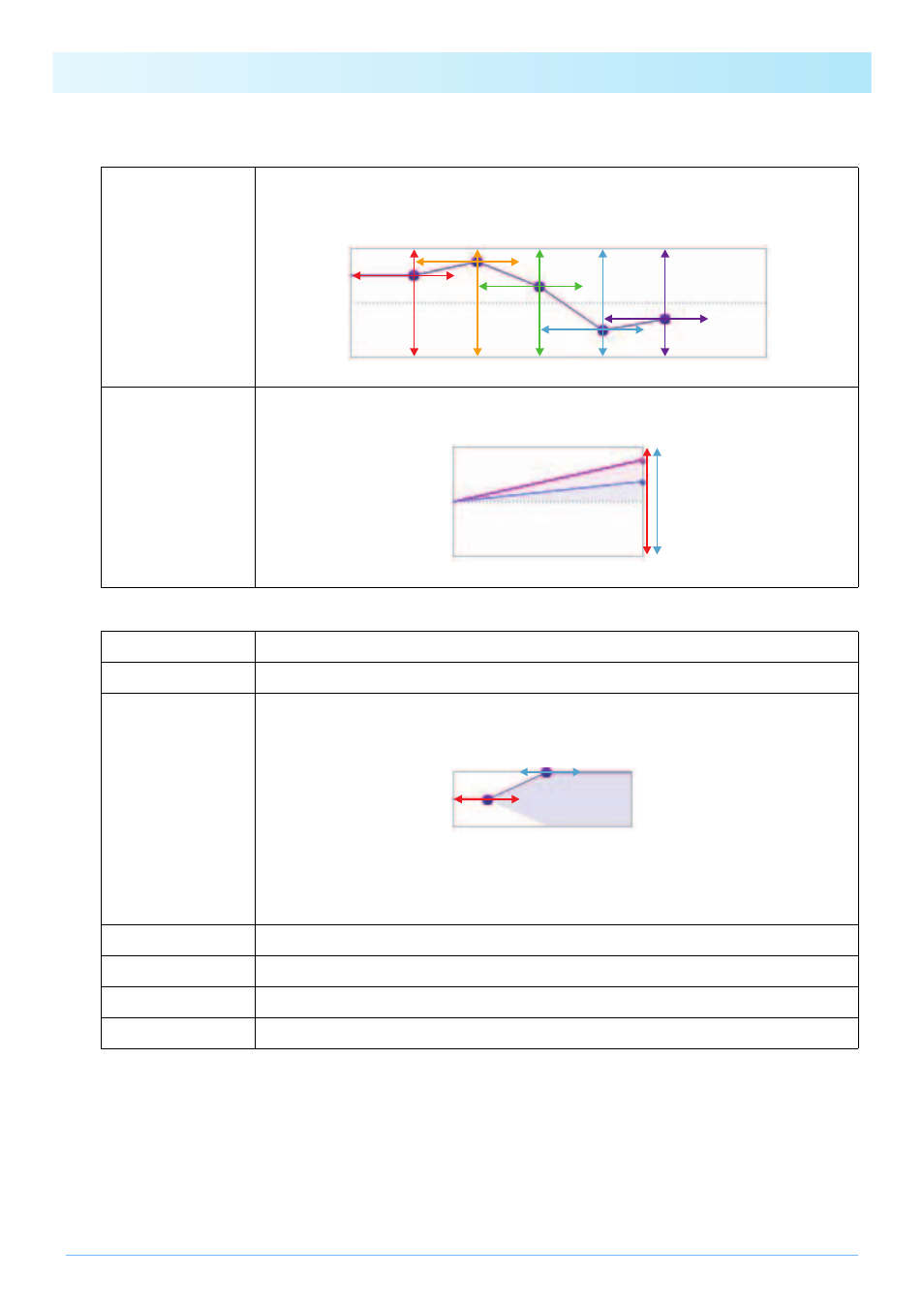Creating your own original voices, Filter lfo – Yamaha Expansion Manager User Manual
Page 19

Creating Your Own Original Voices
19
Filter
LFO
4.
Repeat Step 1 through Step 3 to edit the other Elements.
Using the Element Edit button (
, o) on the Voice Editor window, you can also copy the settings from an edited
Element to another.
This completes the Normal Voice procedure for Step 5 on
. You should now proceed to Step 6.
Filter EG
By dragging the Initial, 1
st
, 2
nd
, 3
rd
, and Release points within the graph, you can set how the
cutoff frequency will change over time between pressing a key and the sound fading away
completely.
Filter Touch Sense
By dragging the Cutoff Sense and Resonance Sense points up and down within the graph, you
can set the sensitivity of the filter’s cutoff frequency and the resonance to velocities.
Wave
Selects the LFO waveform.
Speed
Adjusts the speed (frequency) of LFO variation.
Time
By dragging the Delay Time and Fade Time points left and right within the graph, you can set
how the effect of the LFO changes over time.
Delay Time:
Adjusts the delay between key-on and the beginning of the LFO effect.
Fade Time:
Adjusts the length of the LFO fade-in time, beginning after the Delay Time
(above) and ending when the LFO reaches full amplitude.
A. Mod Depth
Sets the depth of modulation applied when the LFO is used for amplitude modulation.
P. Mod Depth
Sets the depth of modulation applied when the LFO is used for pitch modulation.
F. Mod Depth
Sets the depth of modulation applied when the LFO is used for frequency modulation.
Key On Reset
When this is set to on, the LFO phase is reset with each note-on event.
Time
Filter
Initial
Release
3
rd
2
nd
1
st
Velocity
Filter
Cutoff Sense
Resonance Sense
Time
Depth
Delay Time
Fade Time